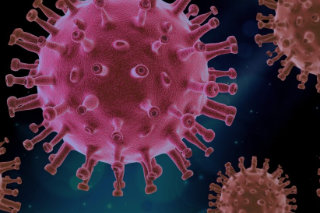A neuropsychological study conducted by psychologists and doctors at University Hospital Cologne and Charité Berlin showed that subjectively experienced and objectively measurable cognitive impairments can differ significantly in post-COVID syndrome. The team led by Dr Ann-Katrin Schild and Daniel Scharfenberg at the Clinic and Polyclinic for Psychiatry and Psychotherapy at University Hospital Cologne examined a group of patients with post-COVID syndrome (PCS) who reported subjective cognitive deficits or fatigue six months after the first examination. The study ‘Six-month follow-up of multidomain cognitive impairment in non-hospitalized individuals with post-COVID-19 syndrome’ has been published in the journal European Archives of Psychiatry and Clinical Neuroscience.
The team found that many patients reported subjective impressions of suffering from cognitive deficits without significant improvement over time. A review of objective test data showed that the measurable performance of overall thinking ability, so-called global cognition, and the cognitive domains of learning and memory, executive functioning and attention improved in people who had a neurocognitive disorder at the first examination. On average, no pathological scores were found for depression or anxiety, daytime sleepiness or poor sleep quality except for fatigue, which was constant at a pathological level. Only the quality of life improved overall.
Schild, Scharfenberg and colleagues investigated the course of cognitive and neuropsychiatric PCS symptoms. For the study, 42 people with persisting cognitive deficits after asymptomatic to mild/moderate acute COVID-19 were neuropsychologically examined twice, once at the baseline of the study and at the follow-up examination after six months. The assessments included comprehensive testing of five neurocognitive domains, two cognitive screening tests and questionnaires on depression, anxiety, sleep, fatigue and health-related quality of life. The results showed a high rate of subjective cognitive complaints at baseline and follow-up (95.2 per cent and 88.1 per cent respectively) without significant change over time.
However, the objectively measured neurocognitive disorder decreased (61.9 per cent at baseline compared to 42.9 per cent at the follow-up examination). Although all cognitive domains were affected, most deficits were found in learning and memory, followed by executive functions, complex attention, language and motor functions. In people with cognitive impairments at baseline, the first three domains improved significantly over time, while the last two remained unchanged. The neuropsychiatric symptoms remained constant except for quality of life, which improved.
“This study emphasizes the importance of comprehensive neuropsychological assessment in longitudinal research and provides valuable insights into the trajectory of long-term neuropsychological impairments in post-COVID syndrome. While cognitive performance significantly improved in some domains, neuropsychiatric symptoms remained unchanged,” said Daniel Scharfenberg, one of the two lead authors of the study.
Overall, the researchers found an average trend towards an improvement in cognitive performance, while subjectively reported health problems and neuropsychiatric symptoms remained stable. “There are many reasons for the discrepancy between subjectively felt and objectively measured cognitive impairments, e.g. that established test procedures are being used in a group of people with cognitive impairments that did not exist before. Those who are affected often continue to experience cognitive impairments that need to be taken seriously by doctors and neuropsychologists. We conclude that people suffering from PCS need access to both appropriate neuropsychological assessment methods and effective therapies to treat their symptoms, such as cognitive training or psychotherapy,” said Dr Ann-Katrin Schild.
The term post-COVID-19 syndrome (PCS) is used when symptoms occur during or after COVID-19, continue for more than 12 weeks after infection and cannot be explained by an alternative diagnosis. The definition of the post-COVID-19 condition published by the World Health Organization (WHO) also includes symptoms that persist for at least two months and impact everyday functioning.
Media Contact:
Dr Ann-Katrin Schild
University Hospital Cologne, Centre for Memory Disorders
+49 221 478-32298
ann-katrin.schilduk-koeln.de
Press and Communications Team:
Robert Hahn
+49 221 470 2396
r.hahnverw.uni-koeln.de
Publication:
https://link.springer.com/article/10.1007/s00406-024-01863-3
